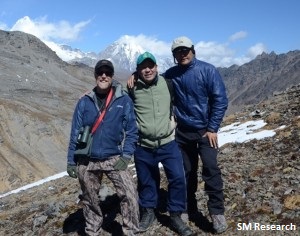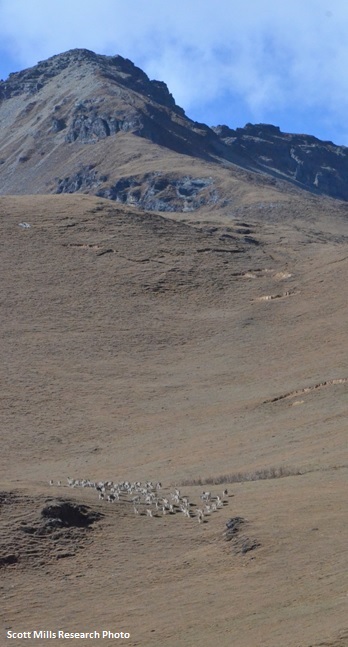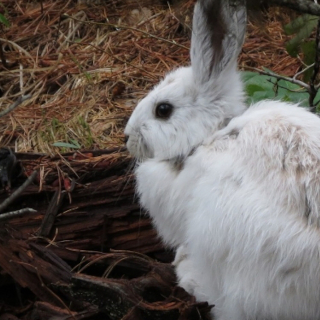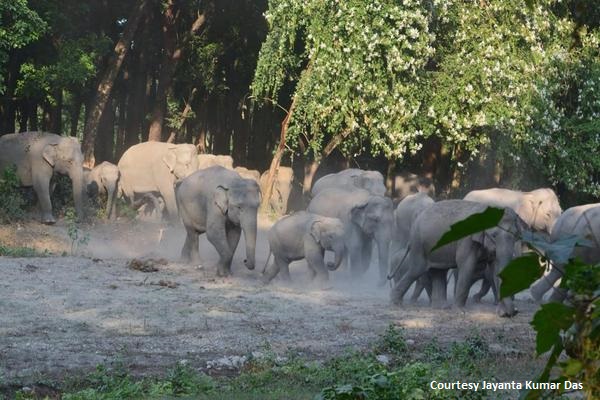Capacity Building and Wildlife Biology Research in the Transboundary Himalayan Region
[Tshewang Wangchuk, Tempa Tshering, Ellen Cheng, Lisa Mills, Tashi Dendhup]
 Tshewang Wangchuk, a conservation biology leader in the remarkable Himalayan Kingdom of Bhutan, got Scott involved in Bhutan in 2006, when he began his PhD with Scott using non-invasive genetic sampling to estimate abundance and connectivity for snow leopards. Scott also mentored Tempa Tshering in his MS thesis to develop modules to teach General Ecology at Ugyen Wangchuck Institute for Conservation and the Environment (UWICE), Bhutan’s first high-level natural resource training and research institute. Tempa has continued on with a PhD with Scott (co-advised with Mark Hebblewhite) using camera traps to study tigers in Bhutan and neighboring countries.
Tshewang Wangchuk, a conservation biology leader in the remarkable Himalayan Kingdom of Bhutan, got Scott involved in Bhutan in 2006, when he began his PhD with Scott using non-invasive genetic sampling to estimate abundance and connectivity for snow leopards. Scott also mentored Tempa Tshering in his MS thesis to develop modules to teach General Ecology at Ugyen Wangchuck Institute for Conservation and the Environment (UWICE), Bhutan’s first high-level natural resource training and research institute. Tempa has continued on with a PhD with Scott (co-advised with Mark Hebblewhite) using camera traps to study tigers in Bhutan and neighboring countries.
 Much of Scott’s work on his multiple trips to Bhutan over the past decade has been to build capacity for Bhutanese to learn conservation biology research techniques to help conserve their amazing biodiversity. In 2010, with support from a Guggenheim Fellowship to Scott, the Mills family spent 6 months in Bhutan. During our time living at 8,500 feet at UWICE in Bhutan, we had a wonderful time with the amazing people and places. Some of our successes included:
Much of Scott’s work on his multiple trips to Bhutan over the past decade has been to build capacity for Bhutanese to learn conservation biology research techniques to help conserve their amazing biodiversity. In 2010, with support from a Guggenheim Fellowship to Scott, the Mills family spent 6 months in Bhutan. During our time living at 8,500 feet at UWICE in Bhutan, we had a wonderful time with the amazing people and places. Some of our successes included:
- Building and outfitting (based on donated equipment and grants we wrote with Bhutanese colleagues) the first non-invasive wildlife DNA lab in the country;
- Hosting a conference and hands-on workshop on “Wildlife Research Techniques in Rugged Mountainous Asian Landscapes”; this workshop aimed to build local capacity for conducting conservation biology research in Bhutan and surrounding countries by bringing in international instructors and a total of 73 participants primarily from within Bhutan but also including participants from India, Nepal, Thailand, and Pakistan.
- Two books describing practical protocols for conducting conservation research (including monitoring) of elephants and other wildlife in remote rugged landscapes.
- “The Elephant’s Trunk” Education and outreach kit. Designed by Lisa Mills, a science educator, this fills a key void in central Asian conservation efforts: to connect scientific findings to the communities most affected and most important in initiating conservation.
Lisa and Scott have developed an evidence-based elephant friendly tea certification program that reduces mortality of elephants on tea estates and improves local livelihoods.

